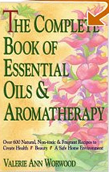Non-toxic Personal Care

Over 60% of what we put on our skin is absorbed into our bodies. Women generally use 12 personal care products a day in which they can be exposed to as many as 175 unregulated chemicals and toxic ingredients. These include phthalates, formaldehyde, petroleum, parabens, benzene and lead that have been linked to skin irritations, breast cancer, hormone problems, endometriosis, reproductive disorders, birth defects and developmental disabilities in children.
- Parabens: Moisturizers and lipsticks may contain the chemical parabens, which is linked to breast and testicular cancer.
- Lead:According to the Campaign for Safe Cosmetics, lead can be found in more than half of the 33 top-brand lipsticks. Lead is a potent neurotoxin, and according to Mark Mitchell, MD, MPH, director of the Connecticut Coalition for Environmental Justice, "The latest studies show there is no safe level of lead exposure. Lead builds up in the body over time and lead-containing lipstick applied several times a day, every day, can add up to significant exposure levels." Since the average woman ingests more than four pounds of lipstick over the course of her life, it's time to get the lead out of lipsticks.
(Please Note: snopes.com had dismissed rumors of lead toxicity in lipstick as "mostly false" and alarmist because -- according to them -- women do not eat lipstick (or at least not in sufficient amounts to do any harm). Any woman who has to keep reapplying her lipstick throughout the day knows that this is not so ... Additionally, some lipstick will get absorbed into the body right through the skin, which is no different than eating it.)
- Phthalates: Nail polish can contain Phthalates that can act as hormone disrupters and may affect fertility
- Propylene Glycol: Soaps can contain Propylene Glycol that can damage the central nervous system
Natural Alternatives to Commercial Body Care Products:
- Make Your Own: After Shave ... Astringent ... Body Power ... Body Scrub ... Body Lotion .... Conditioners ... Dental: Tooth & Gum Care ... Deodorant ... Facial Creams ... Facial Toners ... Facial Mask ... Foot Powder ... Lip Balm ... Hair Care Products ... Massage Oil... Perfumes ... Skin Cleanser ... Shampoo ... Soap & Cleansing Agents ... Tanning Oil
- Make-up: Conventional makeup is composed of 10 percent or less pigments - the rest tend to be fillers, preservatives and other ingredients that sensitive the skin. Mineral makeup has grown in popularity amongs those seeking healthier alternatives. In addition to color, mineral make-up's main ingredients: zinc oxide and titanim dioxide - create a natural sunscreen for the skin. However, while most mineral makeup lines emphasize their sun protection properties, it's best not to rely on makeup alone to protect your skin. This website has a variety of non-toxic make-up and skin care products for you to choose from.
- If you are not "into" mixing your own potions, but would like to use non-toxic, natural body care products, please visit this website for a good selection
- Beautiful skin starts with good nutrition. Please visit this webpage for information on what food items will keep your skin healthy and beautiful.
- Find out what toxins (if any) are in your favorite personal care items. Search the Cosmetics Database
Alternative Solutions for Common Body Care Challenges:
Toss those expensive creams and see how inexpensive it can be to treat these little problems yourself: Acne Treatment ... Age Spots ... Broken Capillaries ... Burns ... Cellulite ... Dry / Cracked Skin ... Foot Odor ... Mature Skin ... Oily & Acne Prone Skin ... Stretch Marks ... Sun-burned Skin ... Swollen Ankles / Tired Feet ... Bad Teeth and Unhealthy Gums ... Thinning, Damaged, Greying Hair .... Tired or Puffy Eyes & Under-eye Circles ... Wrinkles
Holistic Health:
Organic Oils to Lower Cholesterol, lower blood-pressure and overall good health ... Herbal Anti-Inflammatories (addresses skin problems, bacterial / viral diseases, joint problems and arthritis) ... Risks Associates with Commercially Available Personal Care Products
The "Green" Home:

 Do you know the risk associated with commerically available personal care products?
Do you know the risk associated with commerically available personal care products?
- Petroleum - or mineral oil-based products - block the action of the body's natural oils as well as any Essential oils in products, and inhibit healing and skin moisture self-regulation (The Truth about Beauty, Beyond Words Publishing, 2003).
- Synthetic fragrances are less expensive and common in conventional cosmetics, and are responsible for most of the skin reactions that occur from cosmetics.
- Parabens are preservatives found in many pharmaceutical, food, and cosmetic products. In January 2004 research published in the Journal of Applied Toxicology found parabens in 20 human breast tumors. Although this study did not show a direct cause-and-effect relationship, parabens have been found to mimic the activity of estrogen, which promotes the growth of breast cancer cells.
The following items are natural skin or hair care products:
- ULTIMATE SKIN CARE: Cod liver oil mixed with zinc oxide is better for the skin than any of the prescription medications, and safer." (Ref.: Newmediaexplorer)
Zinc Oxide Use and Formulation: Zinc oxide is a natural source pigmented mineral, quarry mined and further refined to a fluffy white powder. It is commonly found in cosmetics as a whitening agent and it is also found within sunscreens because of its impressive capability to block UV light. Zinc Oxide has an enormous refractive index (ability to bend light) and comes in right under the refractive capabilities of diamonds! This is why it is the first choice for powerful sunscreens. Below are the 2 main uses for Zinc Oxide….
1. Cosmetic Use - Zinc Oxide is one of the most powerful whitening pigments found today. It adds a bright white color to lotions, creams, and sunscreens. When using Zinc be sure not to add NO MORE then 25% to the total mixture/recipe. Adding to much will cause a spotty appearance to your cosmetics and may actually cause more harm then good. It should also be noted that if your cosmetics contain too much it will leave a very white, opaque appearance on the skin when applied, this is especially problematic for sunscreens. For best results we recommend 1-2 tablespoons for a 1-gallon batch and 2-3 tablespoons for a 2-5 gallon batch.
2. Sunscreen Use - Unfortunately we are not able to help formulate an exact percentage of Zinc to be used within their sunscreen recipes to create a particular SPF. Creating SPF values is an exact and precise science and we recommend its use through your own trial and error or through the administration of laboratory assistance.
- Beer:
- Hair volumizer – Dousing your hair with some beer will give it more bounce and volume. Beer is rich in nutrients such as potassium and niacin, and contains some protein.
- Hair color protector: Beer is also good for prolonging the color in dyed hair and boosting shine. To use, warm up some beer, soak your hair in it and rinse off with a cold water rinse to lock in the shine and bounce. For even healthier hair, you can mix some raw egg to the beer.
- Skin softener – For soft skin, soak in some beer. A warm bath with six cans of beer is all that is need. Darker beer works better for a beer bath than the pale varieties. However, be warned that if you are going outside immediately after such a bath, the scent will attract insects.
- Coconut oil (organic, virgin) - one of my favorite skin moisturizers, egg yolk, milk, yogurt, safflower oil (for light moisturizing), olive oil (for dry skin or hair), oatmeal, jojoba oil
- Green Tea: Green tea is valued as a wrinkle reverser, inhibiting inflammation and sun damage. An article published in the Archives of Dermatology concurs that green tea may, indeed, ward off skin cancer and signs of aging. Researchers at Case Western University in Cleveland maintain that the secret to green tea's skin-protective properties are its high levels of its high levels of polyphenols and catechins - powerful antioxidants shown to function as anti-inflammatory and anti-cancer agents.
- Tip: After making a cup of tea, save the tea bags in a closed glass container in your refrigerator and use them as cleansing pads for your face the next morning. They are perfect for exfoliating the skin and green tea has anti-inflammatory properties.
- Available at your stores -- please make sure that you get the organic, higher-quality variety.
- Vitamin C: Vitamin C topical preparations can deliver even higher dosages of the skin-strenghening vitamin. This stimulates production of collagen, the connective tissue that keeps skin firm and taut. Lotions and serums enriched with vitamin C may also repair and minimize fine lines and wrinkles caused by sun exposure and aging, and protect the skin against environmental oxidative pollutants and other free radicals.
- Vitamin C cream applied daily to healthy female volunteers with sun-damaged skin over a six-month period resulted in a significant decrease in lines and wrinkles, according to a study published in Experimental Dermatology. Skin biopsies revealed improved collagen structure and reappearance of elastic fibers in the vitamin C-treated skin.
- For an at-home vitamin C treatment, Back recommends rubbing a slice of fresh orange in circular motions on the face before going to sleep, three nights a week. "The vitamin C in the orange will help with cellular renewal, naturally exfoliating hyperpigmentation scars," says Back. "Your epidermis will look like a whole new skin."
- Body oils work by mimicking the skin's own oils and forming a barrier that traps moisture next to the skin. As we get older our oil glands atrophy increasing the need to replace the skin's oil with something external. The body oils MUST be cold-pressed, or pressed without heat, to keep the natural characteristics. Natural body oils also have another advantage. When the ingredient label reads "100 percent oil," you don't have to worry about harmful additives.
- Lotions usually contain preservatives and stabilizers.
- Body oils can be used by themselves or mixed with Essential oils which have their own healing properties.
- Body oils are most effective when applied immediately after a shower or bath so they can trap the moisture left on the skin.
- Carrier Oils & Essential oils:
- Jojoba: Mimics the skin's own oils and can even remove excess sebum.
- Grapeseed oil: An astringent. I use it for my face as I have combination skin that breaks out easily. It's lighter than the coconut oil that I am using for the rest of my body. My sister, who has finer / dryer skin as myself is using coconut oil for both face and body. Please see below for more information on our experience.
- St. John's Wort Oil: Usually mixed with olive oil. Calms the skin.
- Black Cumin Seed Oil & Cranberry Seed Oil: Are especially great for acne because they are both powerfully anti-inflammatory and antioxidant. Even though they can be directly applied to the body or face, they are usually blended with a carrier oil.
- Personal Care: Simple cosmetic preparations - such as eggs, organic oils (very important: cold pressed!), clay, vinegar, and herbs, keep your hair lustrous and skin smooth.
- Carrier Oils: Carrier oils, also referred to as base oils or vegetable oils, are used to dilute Essential oils, CO2s and absolutes before applying to the skin. They “carry” the essential oil onto the skin. Different carrier oils offer different properties and the choice of carrier oil can depend on the therapeutic benefit being sought. Here is a list of commonly used carrier oils.
- Arnica - to relieve soreness and swelling following an injury or surgery.
Please Refer to Legal Disclaimer
GreenAndHealthy.Info strives to maintain accurate and up-to-date information; however, mistakes do happen. If you would like to correct or update any of the information, please send us an e-mail. THANK YOU!

